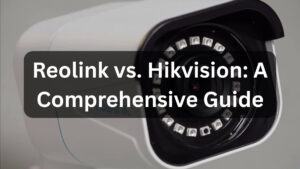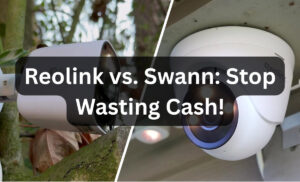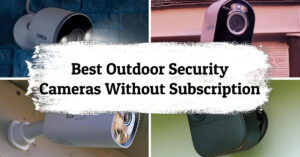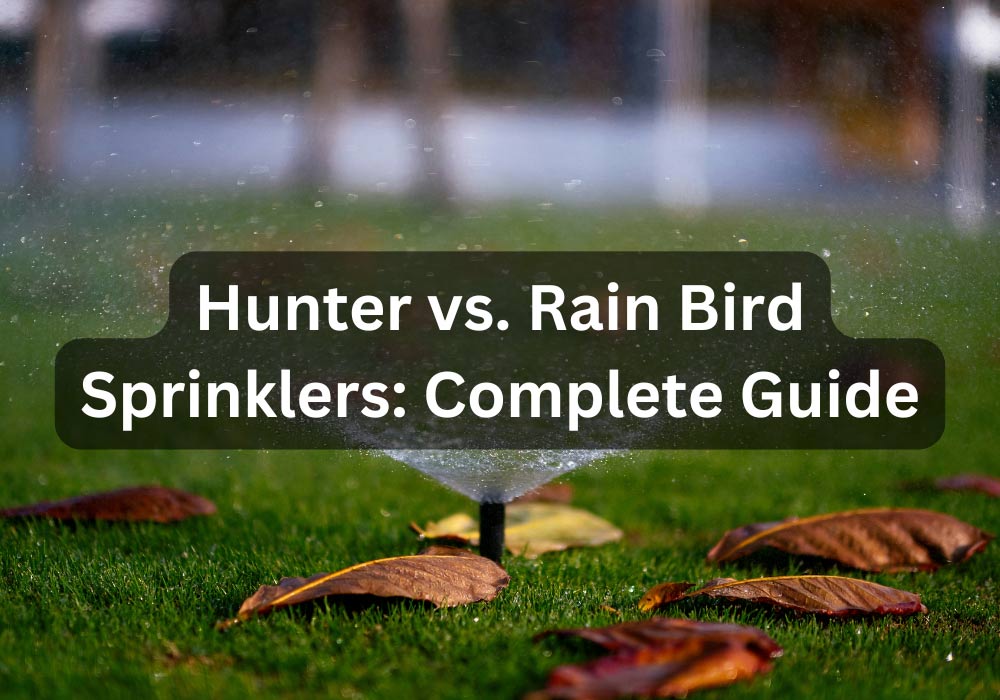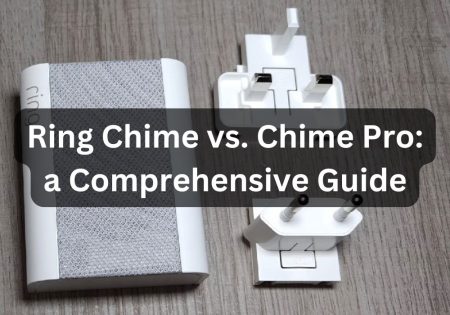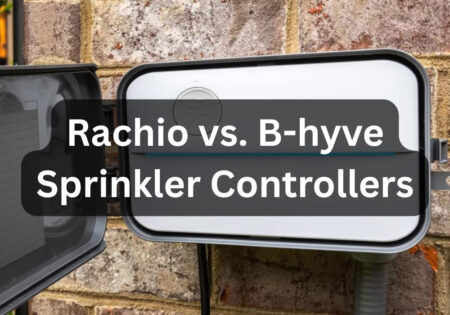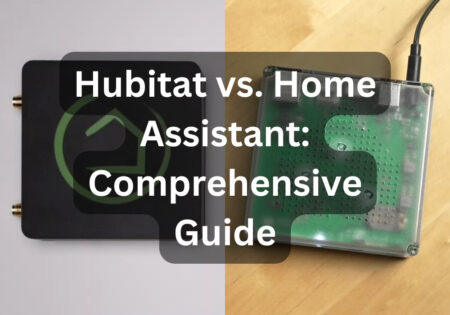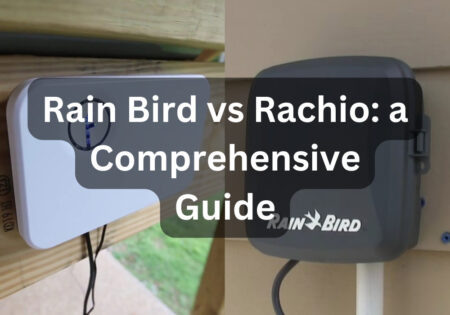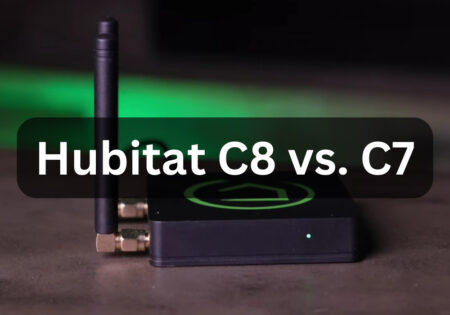Here’s your complete Hunter vs. Rain Bird comparison. Choosing between Hunter and Rain Bird is key to efficient lawn irrigation. Both brands manufacture sprinklers that can distribute water well. In this guide, I’ll compare these two brands in terms of performance and durability and recommend their best use cases.
Which is Better, Rain Bird or Hunter? (Quick Answer!)
I can’t say which brand is worse since there’s no real loser here; each brand caters to different needs.
If you want a system that lasts and performs well under high pressure, I’d recommend Hunter. Their sprinklers work great for large properties and commercial landscapes. The downside is that they require more water flow, and the setup process is more complicated.
Also Read:
Rachio vs. Rain Bird
On the other hand, we have Rain Bird, which is easier to set up. Their system perfectly matches setups with low pressure. With a focus on water conservation, it’s perfect for residential lawns.
| Feature | Hunter | Rain Bird |
|---|---|---|
| Build Quality | Heavy-duty, durable, commercial-grade design | Sturdy, reliable, slightly more plastic parts |
| Sprinkler Performance | Strong, high-pressure output, good for large areas | Even water distribution, better for residential lawns |
| Water Distribution | More water near head and at the end, requires fine-tuning | More consistent and even coverage |
| Ease of Installation | Requires precise setup, better for professionals | Easier to install, more user-friendly |
| Maintenance | Slightly more complex, may need adjustments | Low maintenance, set-and-forget design |
| Water Efficiency | Uses more water but covers large areas fast | More efficient, works well in low-pressure systems |
| Pressure Requirements | Performs best with high water pressure (≥50 PSI) | Works well with lower pressure (30–50 PSI) |
| Cost | Generally more expensive, premium build | More budget-friendly, great value for money |
| Best For | Large commercial spaces, sports fields, high-pressure zones | Residential lawns, small to medium-sized areas, low-pressure systems |
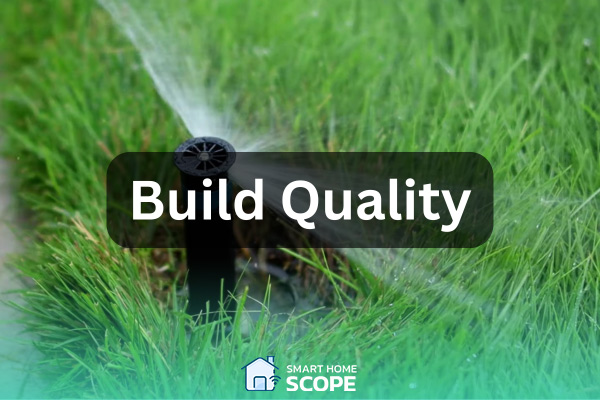
Hunter vs. Rain Bird: Build Quality and Durability
Hunter Sprinklers: Built to Last
Hunter’s sprinklers are highly mentioned for their rugged construction, particularly for their gear-driven rotors like the PGP Ultra and I-40 series. These sprinklers feature:
- Strong materials: Hunter sprinklers are built with thick, industrial-grade plastic and stainless steel components, making them resistant to impact and wear.
- Sealed internal parts: This design guarantees that debris and dirt won’t clog the gears, adding to sprinkler’s longevity.
- Stronger retraction spring: Ensures that sprinkler head retracts fully which prevents it from being damaged from foot traffic or other possible threats.
- Ideal for commercial use: Hunter sprinklers’ durability make them a common choice for parks, sport fields, and large residential properties.
One drawback of Hunter sprinklers is that they need regular maintenance to prevent wear over time. If you don’t install them properly, they may even lose efficiency faster than Rain Bird.
Rain Bird Sprinklers: Reliable and Water-Efficient
Rain Bird’s plastic components feel less durable than Hunter’s. If you use them in high-pressure systems, the gears might wear out. However, they can still last for years, and with water efficiency in mind, they’re a reliable choice for your lawn. They offer:
- UV-resistant plastic: Helps prevent components from cracking or degrading from long sun exposure.
These things clean themselves: Many Rain Bird models, like the 5000 series rotors, come with a self-flushing wiper seal, which helps stop clogs and extends the life of internal parts. - More flexible risers: The risers are more flexible and react well to ground shifts and impacts, preventing them from cracking.
Verdict: So, Which One Lasts Longer, Hunter or Rain Bird?
Hunter’s tougher materials and sealed internal parts make them better when it comes to build quality. But that doesn’t mean Rain Bird’s durability is bad—they strike a good balance between durability and efficiency, especially for residential lawns with low to moderate water pressure.
Hunter’s fortified design promises longevity, while Rain Bird masterfully blends resilience and efficiency, making it a prime choice for residential lawns.
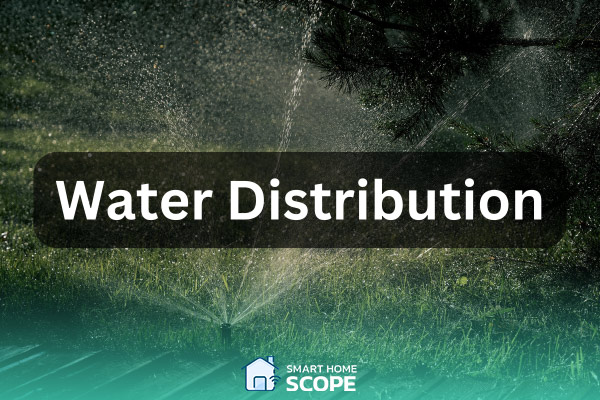
Hunter vs. Rain Bird: Sprinkler Performance and Water Distribution
Water Distribution Pattern
You don’t want a sprinkler that leaves dry spots on your lawn or overwaters certain areas.
Hunter’s high-pressure water streams are well-known for their strong outer spray patterns. However, I’ve noticed some dry spots near the center of the spray from uneven water distribution, especially with certain nozzles.
On the other hand, Rain Bird’s water distribution is smoother and evener across its spray arc. They can cover every area well and leave out no gaps. Rain Bird rotors can maintain consistent soil moisture levels, even when placed farther apart.
Performance in Different Water Pressure Conditions
Hunter is a better choice for high-pressure systems (50-70 PSI) since its strong spray can cover larger areas without misting. However, it struggles with low-pressure systems, so you must manually adjust or change the nozzle.
Rain Bird is the opposite; it adapts better to lower pressure conditions (30-50 PSI). It maintains a steady, even spray without excessive misting. Suppose you’re a homeowner with standard municipal water pressure or a system with limited water flow. In that case, Rain Bird can be a great choice.
Wind Resistance and Misting
Wind resistance is important in an area with occasional windy weather. Hunter uses larger water droplets that resist wind drift to cut down on water loss. But, as I mentioned earlier, this stronger stream can sometimes lead to uneven watering. In contrast, Rain Bird produces a finer mist at high pressures, which makes it more likely to drift in the wind.
Coverage Efficiency and Overlap
A sprinkler is “efficient” when its spray patterns overlap well and minimize dry spots. Hunter performs well in a head-to-head layout but needs precise placement to avoid gaps. Rain Bird, on the other hand, is more efficient since its sprinklers can be placed farther apart while still providing consistent coverage. This means you’ll need fewer sprinkler heads with a Rain Bird setup.
Smart Technologies for Water Saving
In order to save water and avoid overwatering, both brands offer their own technologies. Hunter, offers Hydrawise smart controllers that can adjust weather based on real-time weather data. Rain Bird, provides ESP-Me and LNK WiFi Modules that allows users to control and schedule watering remotely while using weather-based adjustments.
Both brands have their own technologies to save water. Hunter’s Hydrawise smart controllers adjust watering based on real-time weather data. Rain Bird has ESP-Me and LNK WiFi Modules that let users control and schedule watering remotely, along with weather-based adjustments.
Verdict: Which One Offers Better Sprinkler Performance?
| Performance Factor | Winner | Why? |
|---|---|---|
| Water Distribution | Rain Bird | More even spray pattern, reducing dry spots. |
| Low-Pressure Adaptation | Rain Bird | Performs well in low-pressure systems without adjustments. |
| High-Pressure Efficiency | Hunter | Works better in higher pressure systems (50-70 PSI). |
| Wind Resistance | Hunter | Larger droplets reduce wind drift. |
| Coverage & Overlap Efficiency | Rain Bird | Requires fewer heads for even watering. |
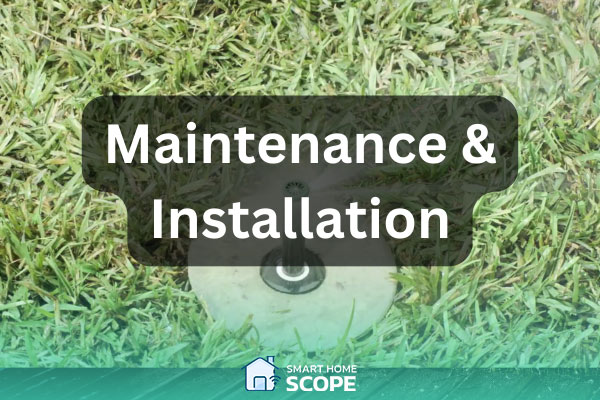
Ease of Installation and Maintenance
Installation Process and Complexity
Rain Bird sprinklers are generally easier to install and don’t require many manual adjustments. Their sprinklers usually come with fittings that attach easily and screws that are already in place. Unfortunately, Hunter sprinklers aren’t as easy to install. Many of their models need precise alignment and extra adjustments to optimize spray coverage.
Rain Bird sprinklers offer effortless installation with minimal tweaking, while Hunter demands meticulous alignment and fine-tuning for peak performance.
Adjustability and Fine-Tuning
Hunter lets users accurately adjust the arc and radius of their sprinklers, but some models require Hunter adjustment keys. This is a bit of a double-edged sword: while it’s great for spot-on customization, it can be less convenient for casual users.
On the other hand, Rain Bird makes life easier with flat-blade screwdrivers for adjustments, which make it easy to modify spray patterns and distances without needing any special tools. Some models even feature self-adjusting pressure regulation to cut down on manual tweaks.
Clogging & Debris Resistance
Thanks to their larger inlet filters, Hunter sprinklers are less likely to clog. While featuring the self-flushing nozzle I mentioned earlier, Rain Bird has a harder time with dirt and debris. Some users have reported that Rain Bird sprinklers can get partially clogged in areas with high-mineral water.
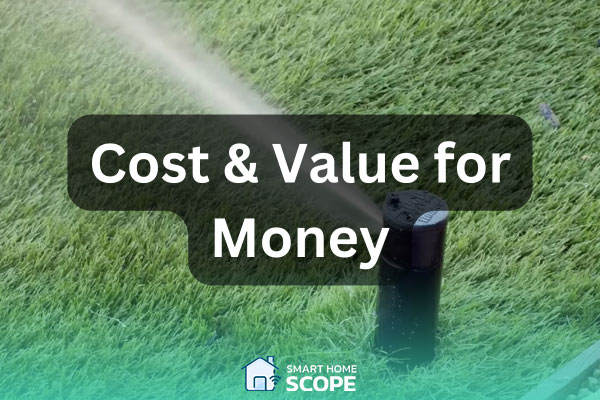
Hunter vs. Rain Bird: Cost
Hunter’s sprinklers, especially models like the I-40 and PGP Ultra, cost more than Rain Bird’s. Those tough materials we talked about earlier come at a cost!
Rain Bird is usually more affordable than Hunter, and some of its pro-grade models, like the Rain Bird 5000 series, cost less than similar Hunter products.
In terms of maintenance costs, while Hunter’s components may be pricier than Rain Bird’s, they last longer and don’t need to be replaced as often. On the other hand, Rain Bird’s plastic components may go bad faster under harsh conditions.
Water and energy costs also matter. Rain Bird sprinklers use less energy to operate. Plus, their Curtain™ technology and smart controllers help reduce water waste. Hunter, while equipped with MP Rotator nozzles and Hydrawise controllers to cut down on water use, still needs higher water pressure, which can increase energy costs.
Conclusion
This Hunter vs. Rain Bird guide gave you everything you need to choose the right sprinkler system. Hunter is the better option for commercial projects or areas that need higher pressure. At the same time, Rain Bird is the smarter pick for residential gardens focused on water conservation.
